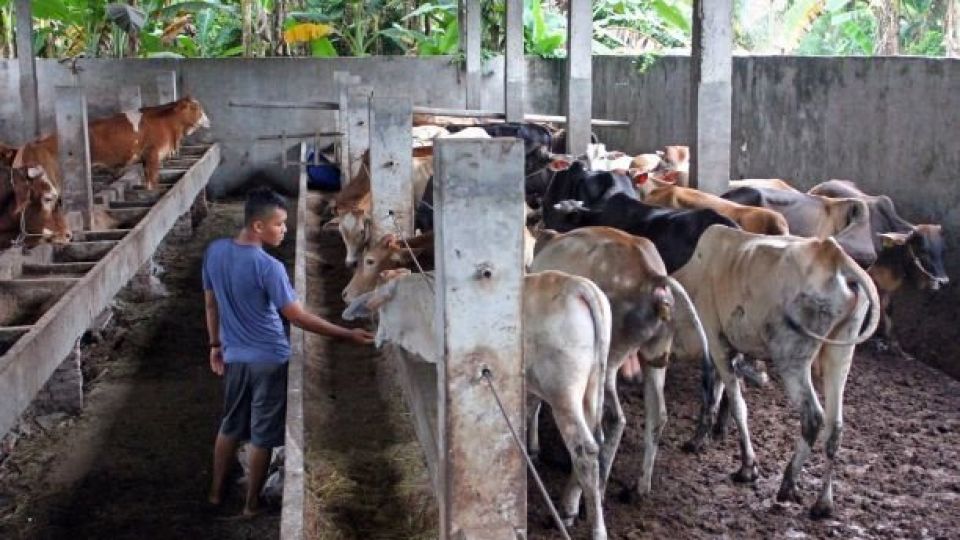August 2, 2023
JAKARTA – Australia has disputed Indonesia’s claim to have found lumpy skin disease (LSD) in live cattle imported from the country.
“Australia is free of LSD,” the Australian Embassy in Jakarta asserted on Tuesday, raising questions about Indonesia’s decision to suspend some imports of live cattle from the country.
“Australia is responding promptly to the request for an investigation report and will continue to work closely with the government of Indonesia to resolve this issue quickly,” an embassy spokesperson told The Jakarta Post on Tuesday.
The embassy added that no other country had detected LSD in imported Australian cattle and no other country had imposed trade restrictions.
Read also: Indonesia pauses Australian cattle imports after cows found with lumpy skin disease
LSD, a contagious viral disease that affects cattle and buffaloes, is known to induce blisters and reduce milk production. It is primarily transmitted through insect bites and is not threatening to human health.
Indonesia, through the Agricultural Quarantine Agency of the Agriculture Ministry, has temporarily halted live cattle imports from four Australian export facilities.
This decision came in response to the clinical detection of LSD in several animals after their arrival.
“The pause is carried out pending the findings of further investigation,” agency head Bambang said in an official statement on Tuesday.
LSD was also detected in Indonesian livestock in March, according to media reports.
The agency said its investigation followed standard procedures. Cattle that had just arrived were promptly inspected, sampled and subjected to clinical tests, leading to the detection of LSD, Detik Finance reported.
However, the Australian authorities seemed to raise doubts about the test results, Bambang said.
Australia has announced a 60-day investigation period starting on July 12. Bambang said that after that period, the government would decide on a possible resumption of cattle imports from the four facilities.
The government was actively coordinating its response with the Australian government’s Department of Agriculture, Fisheries and Forestry (DAFF), Bambang said.
He said imports from Australia could proceed as normal from the remaining 56 facilities registered to export live cattle to Indonesia.
Nevertheless, he noted that Indonesia had not ruled out the possibility of extending the suspension to other facilities located within a radius of 30 to 60 kilometers of the currently suspended ones. The decision was based on the assumption that disease-carrying insects could travel such distances and thereby potentially reach nearby facilities.
“Within the radius that flies can reach, we don’t need to test it again, we will automatically [freeze] it,” said Bambang.
Previously, Australian Agriculture Minister Murray Watt said efforts were “underway” to conduct tests and restore live cattle export volumes to Indonesia through the remaining registered establishments.
Read also: Indonesia looks to import cattle, soy from South Africa
LSD vaccine urgently needed
Indonesian Cattle and Buffalo Breeders Association (PPSKI) chairman Nanang Subendro said the LSD outbreak had been triggered by a low vaccination rate and low awareness of the disease compared to other infectious diseases, such as foot-and-mouth disease (FMD), which was also highly contagious in cloven-hoofed animals.
“The LSD vaccination rate is still very low at less than 20 percent when compared to the standard 70 percent,” Nanang told the Post on Tuesday.
He emphasized the importance of the LSD vaccine, as even though cattle typically recovered from the disease, their ability to produce optimally was still affected.
Indonesia is the largest market for Australian live cattle, accounting for about 56 percent of exports in 2021 and 2022, according to data quoted by Reuters. At about US$600 million, this trade is of significant value for Australia.


